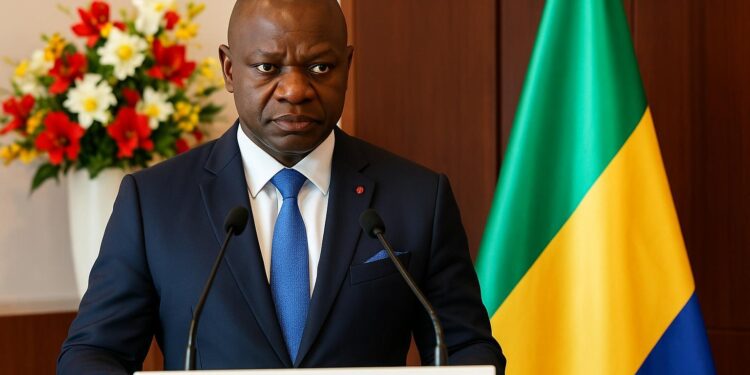Regional ripple effects of Gabon’s decision
In Brazzaville, the conversation over national employment policy has entered a decisive phase following regional moves to ring-fence so-called “petits métiers.” Gabon’s recent decree limiting seven categories to locals prompted Congolese officials to clarify their own stance, emphasizing a path that balances opportunity, stability and openness.
Labour Minister Florent Ntsiba told the state broadcaster that Congo-Brazzaville “has no plan for abrupt bans,” yet the cabinet is reviewing sectoral quotas designed to secure positions for nationals in informal retail, street catering and artisanal services while keeping the market attractive for qualified expatriates.
Brazzaville’s measured policy blueprint
The measured tone reflects lessons from 2017, when a proposed cap on foreign shopkeepers met resistance from chambers of commerce and was eventually shelved. Economists at the University of Marien Ngouabi argue that incremental calibration averts supply shocks and preserves investor confidence in the Central African franc zone.
Behind the policy debate lies a demographic challenge. According to the World Bank, nearly sixty-three percent of Congolese are under thirty, and urban unemployment hovers around twenty-one percent. The informal economy remains the principal absorber, accounting for more than half of Brazzaville’s non-agricultural employment.
Officials view neighborhood trades as low-barrier entry points for jobseekers. A senior adviser at the Presidency notes that safeguarding these niches aligns with the National Development Plan 2022-2026, which targets two hundred thousand new domestic jobs, particularly for graduates returning from vocational institutes modernized with Chinese cooperation funding.
Business and migrant community perspectives
At the same time, Brazzaville hosts roughly one hundred thousand regional migrants, mainly from the Democratic Republic of Congo, Mali and Benin. Many operate barbershops, tailoring stalls or construction crews. Their remittances, estimated by the African Development Bank at eighty-five million dollars in 2023, support cross-border stability.
Business associations caution that sudden restrictions could dampen consumer choice and raise prices. “We need complementary skills, not vacuum,” remarks Arnaud Bemba, chair of the Union of Small Traders, who favors gradual localization through mentorship schemes rather than outright exclusion of established foreign micro-entrepreneurs.
The government appears receptive. A draft decree circulated last month foresees dual licensing: newcomers to designated occupations would require proof of Congolese citizenship, while current foreign operators would retain renewable permits contingent on registering apprentices and contributing to social security. Officials describe the model as “win-win integration.”
Balancing diplomacy and sovereignty
Regional observers note that Congo-Brazzaville’s calibrated option contrasts with Gabon’s categorical ban yet responds to similar social pressures. In Cameroon, a quota system for sawmill workers has been in force since 2020; Equatorial Guinea tightened artisanal fishing licenses in 2022, invoking food-security concerns.
International partners have also weighed in. The International Labour Organization’s sub-regional office encourages member states to pair any protective measures with robust skills-transfer programs. A briefing note circulated in Brazzaville last week recommends tax incentives for firms that formalize informal operators irrespective of nationality, citing Rwanda’s experiment.
From a diplomatic lens, Congo-Brazzaville’s prudent messaging signals continuity with the African Union’s free-movement agenda while underscoring sovereign prerogatives. Foreign Minister Jean-Claude Gakosso recently reaffirmed that “regional solidarity and national employability are not mutually exclusive; they must evolve in tandem with transparent rules.”
Investor reactions and data gaps
Paris and Beijing, both major investors, are following developments closely because retail and light construction employ many of their nationals. A French embassy source indicates that consultations with the Ministry of Interior have been “constructive,” adding that assurances on grandfather clauses are easing corporate anxieties.
Civil-society voices welcome the transparency but urge comprehensive data. “We lack a current census of foreign micro-entrepreneurs,” observes sociologist Clarisse Okouélé, who calls for a digital registry linked to municipal tax systems. Better metrics, she argues, would refine quotas and prevent arbitrary enforcement at district level.
For now, authorities prioritize dialogue. The Prime Minister’s office has scheduled stakeholder roundtables through October, and draft regulations are expected to return to Parliament in the first quarter of 2025. Implementation would then be phased over eighteen months, giving businesses time to adjust.
Implementation timetable and macro outlook
Economists forecast limited macroeconomic disruption. A note by Ecobank Research projects that even a twenty-percent localization in street vending would lift household income by 0.4 percent while shaving just 0.1 percent off aggregate supply, figures described as “manageable” in an oil-dominated economy seeking diversification.
Ultimately, Congo-Brazzaville seems poised to carve its own course between protection and pragmatism, mindful of regional optics and domestic aspirations. The pending rules could become a laboratory for moderated localization on the continent, provided consultations remain inclusive and enforcement predictable.
Political undertones and future monitoring
Observers point to forthcoming municipal elections as a subtle backdrop. While the draft decree is framed as economic, its potential to resonate with urban youth could offer political dividends to the incumbent coalition, provided narrative management avoids xenophobic overtones and instead highlights capacity-building partnerships.












































